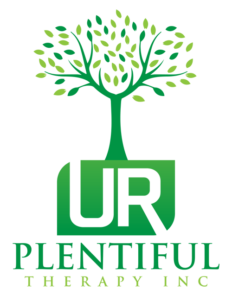In the complex web of human connections, not all relationships are healthy or beneficial. Some relationships, unfortunately, can be toxic, leaving behind scars that may take years to heal. In this blog post, we will delve into the signs of toxic relationships, explore their impact on mental and emotional well-being, and provide guidance on breaking free from their grip.
Understanding Toxic Relationships: Toxic relationships can manifest in various forms, from romantic partnerships to friendships and family dynamics. What defines a toxic relationship is not always evident from the outside; it often lurks beneath the surface, disguised by love, loyalty, or familiarity.
Signs of Toxicity:
- Lack of Trust and Respect: In toxic relationships, trust and respect are often compromised. Partners may belittle each other, disregard boundaries, or engage in manipulative behaviors.
- Constant Criticism and Negativity: Healthy relationships thrive on encouragement and support, whereas toxic ones are characterized by incessant criticism, negativity, and a lack of appreciation.
- Emotional Manipulation: Manipulative tactics, such as guilt-tripping, gaslighting, or emotional blackmail, are common in toxic relationships. These tactics erode self-esteem and create dependency.
- Isolation and Control: Toxic individuals may isolate their partners from friends and family, exerting control over their social interactions and decision-making processes.
- Inconsistent Behavior: Fluctuating between affection and hostility, toxic individuals keep their partners on an emotional rollercoaster, causing confusion and instability.
The Impact of Toxic Relationships: The effects of toxic relationships extend far beyond surface-level disagreements. They can deeply affect one’s mental and emotional well-being, leading to anxiety, depression, low self-esteem, and even physical health problems. Moreover, toxic relationships hinder personal growth and fulfillment, trapping individuals in cycles of dysfunction and despair.
Breaking Free from Toxicity: Recognizing and acknowledging the toxicity of a relationship is the first step towards liberation. Here are some strategies to break free from toxic bonds:
- Set Boundaries: Establish clear boundaries to protect your emotional and mental health. Communicate your needs and expectations assertively, and be prepared to enforce consequences if they are violated.
- Seek Support: Surround yourself with supportive friends, family members, or a therapist who can offer guidance and validation as you navigate the challenges of leaving a toxic relationship.
- Focus on Self-Care: Prioritize self-care activities that nurture your mind, body, and spirit. Engage in hobbies, practice mindfulness, and prioritize your physical health to rebuild your sense of self-worth and resilience.
- Explore Your Options: Consider your options for exiting the toxic relationship safely. Whether it involves seeking legal protection, finding alternative living arrangements, or seeking professional help, prioritize your safety and well-being above all else.
In a world where relationships play a fundamental role in shaping our lives, it’s crucial to recognize when a relationship has turned toxic. By understanding the signs of toxicity, acknowledging its impact, and taking proactive steps to break free, individuals can reclaim their autonomy and pave the way for healthier, more fulfilling connections in the future. Remember, you deserve love, respect, and happiness in all your relationships.

